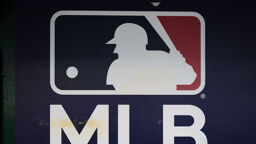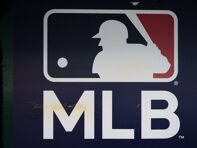Athletics has always been a huge part of my life, tennis and baseball in particular. From as early as 6 years old, I was ingrained with the importance of having thick skin and being tough in order to be successful in athletics.
Beginning in Little League baseball, I was taught that as a boy in sports I had to “man up” in order to succeed in competition. Signs of weakness and vulnerability were frowned upon and discouraged.
Growing up, I never discussed with anyone the nerve-wrenching bouts of anxiety I would have during many of my baseball games. Nor did I bring up the heart racing, the shaking and lightheadedness I had during tennis matches as I competed in junior tournaments.
I was often afraid of making an error on the baseball field as I worried about how a mistake would be costly for my team. I feared the negative reactions of teammates, coaches and spectators. For me, performing well was as much about avoiding anger as it was receiving approval. I placed unhealthy amounts of self-value on my performance. A bad game could ruin my entire week.
I remember during a game for a travel baseball team the summer after sixth grade — while playing third base — I missed a routine popup in foul territory. After the error, I could see one of the assistant coaches had slouched back on the bench, pulling his baseball cap down over his face. While I was still in the field I was, to my embarrassment, pulled out of the game and benched. As I went to the dugout, I was greeted by silence and faces red and full of anger. There were never any words of encouragement — I was simply ignored. I felt ashamed and weak.
Moreover, sports exposed me to a mentality where being gay was associated with being weak and it was appropriate to say homophobic slurs. During a practice in middle school for a different summer baseball team — as the team was doing a short toss drill with the baseball — our coach told each us to “flap your wrist like a faggot” when tossing the ball.
I was often unsettled and anxious in these youth sports environments as I felt they had an overwhelming and unnecessarily cut-throat and homophobic mentality. The anxiety carried over to my entire life.
For a long time, I did not really know what these feelings were. The racing thoughts, the shaking, the hopelessness … I had no label for it and just tried to put it aside. I wanted to be and show that I was in control of myself inside and outside of athletics. Not until my junior year of high school when I opened up about how I was feeling was I finally diagnosed with an anxiety disorder.
Through coming out and opening up about my anxiety and depression, I have had the opportunity to engage in meaningful discussions about these things, learn more about myself and grow.
In some ways, I find the adversity I experienced to be a form of a gift. Through coming out and opening up about my anxiety and depression, I have had the opportunity to engage in meaningful discussions about these things, learn more about myself and grow. When I play tennis, I am able to bring more of my full self not just as an athlete, but as a person. I feel that I am able to be a better teammate and competitor because of this.
Creating environments for good mental health in athletics and men’s athletics has been undervalued and often ignored. My coaches had a profound impact on me during a time that I was extremely vulnerable.
Like any aspiring athlete, I wanted to respect and listen to my coaches. They were authority figures in the community that I looked up to. I took almost everything they said at face value, without question nor knowing any better. Coaches are in a position of power over their athletes. With that power comes the responsibility to be a good role-model for players, helping them learn how to excel within and outside of athletics.
This does not understate the importance of hard work and discipline that is needed to succeed in competitive sports. To develop as a tennis player, there has been difficult work that I have had to put in that I have not always enjoyed. Sometimes, that work has been stressful, but I have found it to be necessary to my growth and confidence as a player. Still, the importance remains of a nurturing environment in order to truly be successful, to love a sport and to be happy.
No one should be able to take away your love for a sport by creating a negative and unwelcoming environment.
Sports are for everyone; no one should be able to take away your love for a sport by creating a negative and unwelcoming environment. I nearly gave up competitive athletics because of some of the experiences I had in youth sports. However, I have learned that there is no limit to what an athlete can be or look like; or what it means to be a man in athletics.
To any athlete, you can be vulnerable, sensitive, insecure, confused and still be a competitor. You can be gay. You can struggle with an anxiety disorder and depression. You can be your own person. It doesn’t matter. No single coach can define you as an athlete or decide for you your place in athletics. Sports are a place where we all belong.
I am lucky enough to now be surrounded by coaches and players on my college tennis team and back at home who are aware of my struggles with anxiety and are there to talk to me. They are also aware of the insecurity that society and athletics have created for me as a gay man and are accepting, understanding and supportive.
I have finally regained a love for sports. I want to carry this love for athletics with me for the rest of my life. As I coach kids in a tennis camp this summer, I want to be the role model for them in sports that I never had at their age.
I hope that they learn just how amazing sports can be. I have been inspired by one of the youngest campers who smiles every time he is on the court. He told me recently that he would sleep over at the tennis club if he could. It’s for the love of the game. Isn’t that what it’s all about?
Nicholas Lee, 21, is a rising senior at Vassar College where he is majoring in Psychology and Hispanic Studies as a member of the men’s tennis team. He can be reached by email at [email protected], on Facebook as Nicholas Lee, or on Instagram @nicklee.aka.licknee.







































